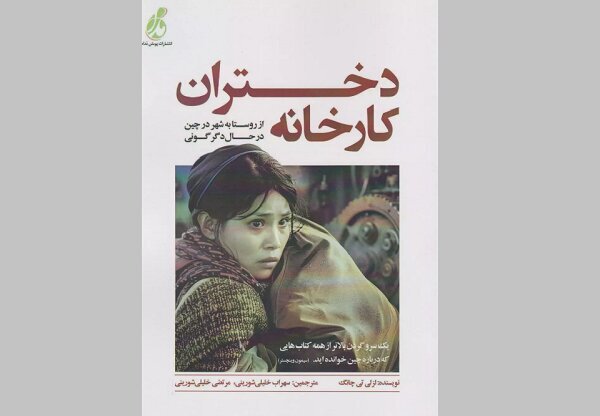INSUBCONTINENT EXCLUSIVE:
Chang has been released in bookstores across Iran.Translated by Sohrab Khalili Shourini and Morteza Khalili Shourini, the book has been
Chang, a former correspondent for the Wall Street Journal in Beijing, tells the story of these workers primarily through the lives of two
young women, whom she follows over the course of three years as they attempt to rise from the assembly lines of Dongguan, an industrial city
can lose your boyfriend and your friends with the loss of a mobile phone; where a few computer or English lessons can catapult you into a
completely different social class.Chang takes the readers inside a sneaker factory so large that it has its own hospital, movie theater, and
fire department; to posh karaoke bars that are fronts for prostitution; to makeshift English classes where students shave their heads in
monk-like devotion and sit day after day in front of machines watching English words flash by; and back to a farming village for the Chinese
how the mass movement from rural villages to cities is remaking individual lives and transforming Chinese society, much as immigration to
Younger country people move from rural to urban-industrial China to seek a better livelihood for themselves and, through money sent home,
for their loved ones left behind
These migrants represent the apparent inexhaustible supply of cheap labor that China needs for building its sprawling cities with their
high-rises and factory complexes
They maintain and clean its buildings and offices, attend to the households and children of the rising urban middle class, and fill and
appliances, toys, and Christmas decorations and lights.Dongguan is a natural place for Chang to contact and get to know her factory girls
Through dogged determination and persistence, Chang is able to make sustained contact and put a human face on people with actual names to an
They are vibrant personalities with interesting stories to tell.These girls are largely poorly educated youth, ages 16 to 25 years, who
begin their first industrial employment by joining an army of assembly line workers
The very moment they are employed on the line, they are already thinking of ways to free themselves from their monotonous and fatiguing
Besides being lured to the city by the possibility of improving the family economy and the excitement of seeing the world, these girls are
also driven by the boredom and idleness of the hum-drum farm life that their parents and younger siblings easily manage.Being young and
steeped in the Chinese tradition of self-cultivation (however much on the unconscious level) and despite inadequate formal education, they
do often ask the fundamental question of what life is all about
They are anxious to seek opportunities, learning computer skills, speaking English, gaining poise and self-confidence in assertive

